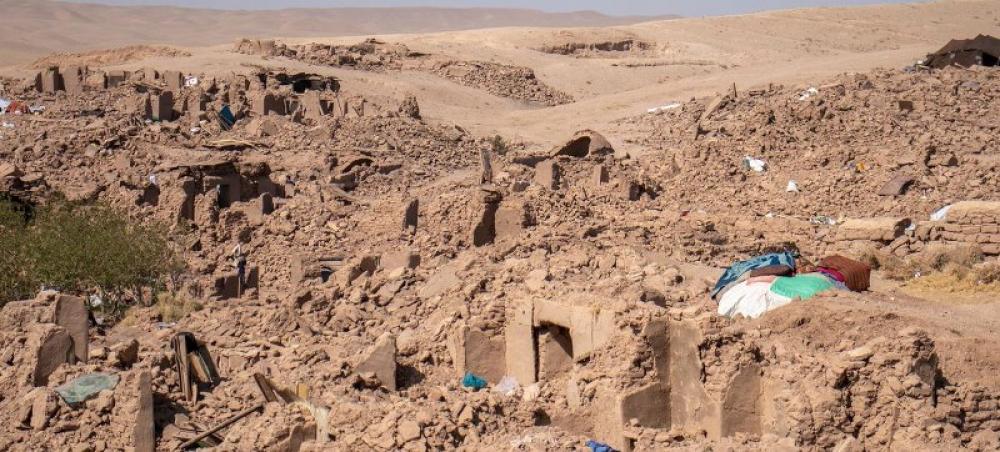Just Earth News | @justearthnews | 17 Oct 2023, 08:39 am Print
 Afghanistan
Afghanistan Image: UNICEF/Khayyam
A powerful earthquake struck western Afghanistan again on Sunday, making it the fourth to hit the impoverished region since 7 October, causing more suffering for families left with little to survive on as the hard winter approaches, UN agencies have reported.
The latest, 6.3 magnitude earthquake struck areas northeast of Herat city Sunday morning local time.
According to the UN Office for Coordination of Humanitarian Affairs (OCHA), as of Monday evening local time, two people were reported to have been killed and over 150 injured in the latest quake.
In total, about 1,500 people have died, and a further 2,000 injured.
Race against time
Daniel Peter Endres, acting UN Humanitarian Coordinator for Afghanistan, described the situation there as “a race against time” for aid organisations to deliver assistance before the onset of winter.
“These earthquakes have struck some of the most vulnerable communities in Afghanistan, they have already been grappling with decades of conflicts and under development,” he told journalists in New York, via video link.
“The affected communities have little resilience to cope with the multiple and simultaneous shocks, and especially with the cold winter coming, when households have limited food resources and are most constrained in capacity.”
Nightly temperatures have dipped considerably, he said, noting that many whose homes were damaged are sleeping outside, afraid their dwellings might collapse completely.
Tweet URL
Initial response plan
He mentioned that local communities and aid organizations are helping those in need by providing food and non-food relief items, including tents, blankets and heating supplies. However, more help is needed.
The humanitarian community in Afghanistan has created an initial response plan for recovery, focusing on 114,000 people whose homes were destroyed or badly damaged. The plan may be revised as necessary.
Mr. Endres said the crisis response will be absorbed within the 2023 Afghanistan Response Plan, which is itself severely underfunded.
Impoverished region
The powerful earthquakes, have added to “a mountain of hardship” facing Afghans, the UN World Food Programme (WFP) said on Monday.
“These are communities that are already barely able to feed themselves, and every one of these crises pounds them back into utter destitution,” added Philippe Kropf, an agency spokesperson in Afghanistan, who went to affected villages after the first earthquakes struck last week.
“This comes on the back of nearly 40 years of near uninterrupted conflict,” he stressed, “of high levels of food insecurity, of five years of drought or drought-like conditions – and an economic downturn two years ago that has destroyed livelihoods and jobs.”
Damage till date
About 43,000 people (7,165 families) are reported to have been directly affected by the earthquakes and their aftershocks across the region, according to OCHA. More than 3,300 homes are reported to have been destroyed, 2,100 severely damaged, and 1,700 moderately damaged.
Aid facilities, homes, water sources, and offices have also sustained damage of varying severity, and engineering assessments are ongoing to ascertain structural damage, and to allow traumatized residents to return to their homes.
- Abandoned at birth, Punch the macaque finds global love as crowds flock to Tokyo zoo
- YouTube Premium Lite just got a massive boost — Know all details
- Trump claims he stopped 35 million deaths by stopping India-Pakistan war
- Entrepreneur decides to shut down 16-year old eatery in London, cites harassment and Pakistani attacks
- Ubisoft bets big on Assassin’s Creed with strategic leadership revamp





-1763561110.jpg)
